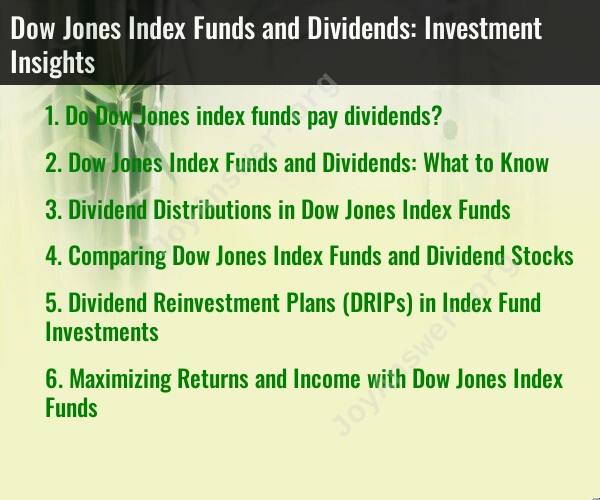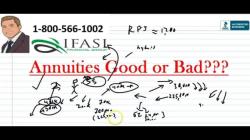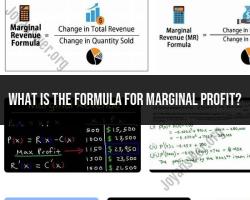Do Dow Jones index funds pay dividends?
Dow Jones index funds, also known as exchange-traded funds (ETFs) or mutual funds that track the Dow Jones Industrial Average (DJIA), are designed to replicate the performance of this well-known stock market index. The DJIA is composed of 30 large, publicly traded U.S. companies, and it is primarily a price-weighted index. Unlike some other indexes, the DJIA does not include dividends in its calculation.
However, many of the individual stocks that make up the DJIA do pay dividends to their shareholders. These dividends are typically paid on a regular basis, such as quarterly. When you invest in a Dow Jones index fund, you indirectly benefit from the dividends paid by the underlying stocks because the fund holds shares of these companies.
Here's how it works:
Dividend Income: As the Dow Jones index fund holds shares of the individual companies in the DJIA, it receives dividend income from those companies.
Reinvestment or Distribution: The fund may handle this dividend income in one of two ways:
- Reinvestment: Some index funds automatically reinvest the dividends they receive back into the fund. This means that your investment in the fund grows over time as additional shares are purchased with the dividend income.
- Distribution: Other funds may distribute the dividend income to fund shareholders in the form of cash payments.
The specific approach a Dow Jones index fund takes regarding dividend income can vary from one fund to another, so it's essential to review the fund's prospectus or consult with the fund manager to understand how they handle dividends.
It's important to note that the overall yield from a Dow Jones index fund is influenced by the dividend policies of the underlying companies. If the companies in the DJIA pay significant dividends, this can contribute to the fund's overall return. However, because the DJIA is a price-weighted index and does not account for dividends, the dividend yield of a Dow Jones index fund may not necessarily reflect the dividend yield of the underlying stocks.
If you're interested in investing in Dow Jones index funds with a focus on dividends, you may also consider other funds or ETFs that specifically track dividend-focused indexes, such as the Dow Jones U.S. Select Dividend Index or other dividend-oriented benchmarks. These funds are designed to emphasize companies with strong dividend payment histories.
Dow Jones Index Funds and Dividends: What to Know
Dow Jones index funds are a type of index fund that track the performance of the Dow Jones Industrial Average (DJIA). The DJIA is a stock market index that tracks the performance of 30 large, blue-chip companies in the United States.
Many Dow Jones index funds pay dividends to their shareholders. Dividends are a portion of a company's profits that are paid out to shareholders. Dividend payments are typically made quarterly, but some companies pay dividends monthly or annually.
Dividend Distributions in Dow Jones Index Funds
The amount of dividends that a Dow Jones index fund pays to its shareholders depends on a number of factors, including the following:
- The dividend yield of the companies in the index
- The weight of each company in the index
- The fund's expense ratio
The dividend yield of a company is the percentage of its share price that is paid out in dividends each year. The weight of a company in an index is the percentage of the index's total market capitalization that the company represents. The fund's expense ratio is the percentage of the fund's assets that are used to pay for the fund's operating expenses.
Comparing Dow Jones Index Funds and Dividend Stocks
Dow Jones index funds and dividend stocks offer a number of similarities and differences.
Similarities
- Both Dow Jones index funds and dividend stocks can be used to generate income.
- Both Dow Jones index funds and dividend stocks are subject to market risk.
- Both Dow Jones index funds and dividend stocks can be held in tax-advantaged accounts, such as individual retirement accounts (IRAs) and 401(k) plans.
Differences
- Dow Jones index funds track the performance of a basket of stocks, while dividend stocks are individual stocks.
- Dow Jones index funds offer diversification, while dividend stocks do not.
- Dow Jones index funds are typically more liquid than dividend stocks.
Dividend Reinvestment Plans (DRIPs) in Index Fund Investments
Dividend reinvestment plans (DRIPs) allow shareholders to reinvest their dividends into additional shares of the fund. This can help shareholders to grow their investment over time.
Many Dow Jones index funds offer DRIPs to their shareholders. To enroll in a DRIP, shareholders typically need to contact the fund company and complete a DRIP enrollment form.
Maximizing Returns and Income with Dow Jones Index Funds
There are a few things that investors can do to maximize their returns and income with Dow Jones index funds:
- Choose a fund with a low expense ratio.
- Invest in a fund that tracks a broad market index, such as the DJIA.
- Reinvest dividends to grow your investment over time.
- Hold your investment for the long term.
Conclusion
Dow Jones index funds can be a good way to invest in the stock market and generate income. However, it is important to understand the risks and rewards of investing before making any investment decisions.













